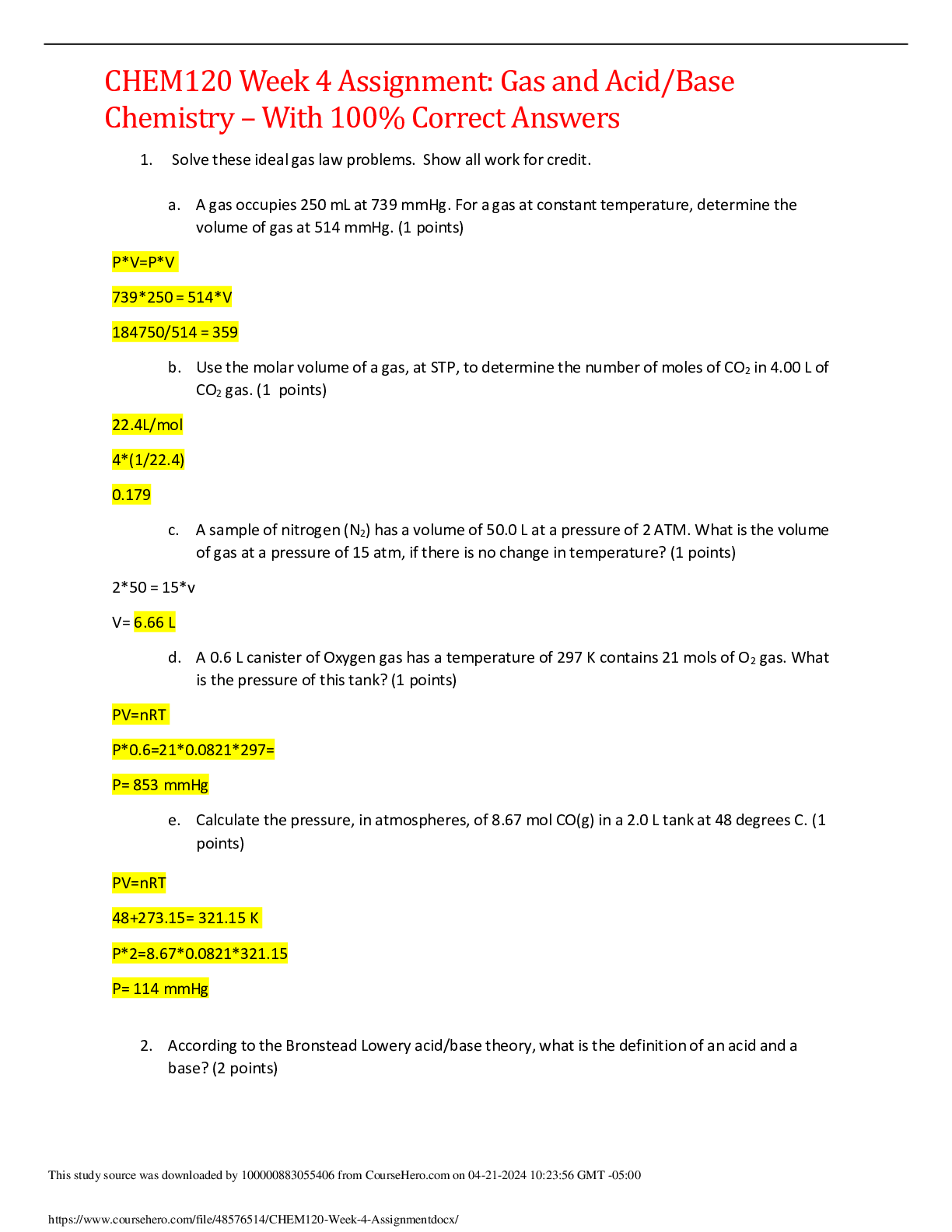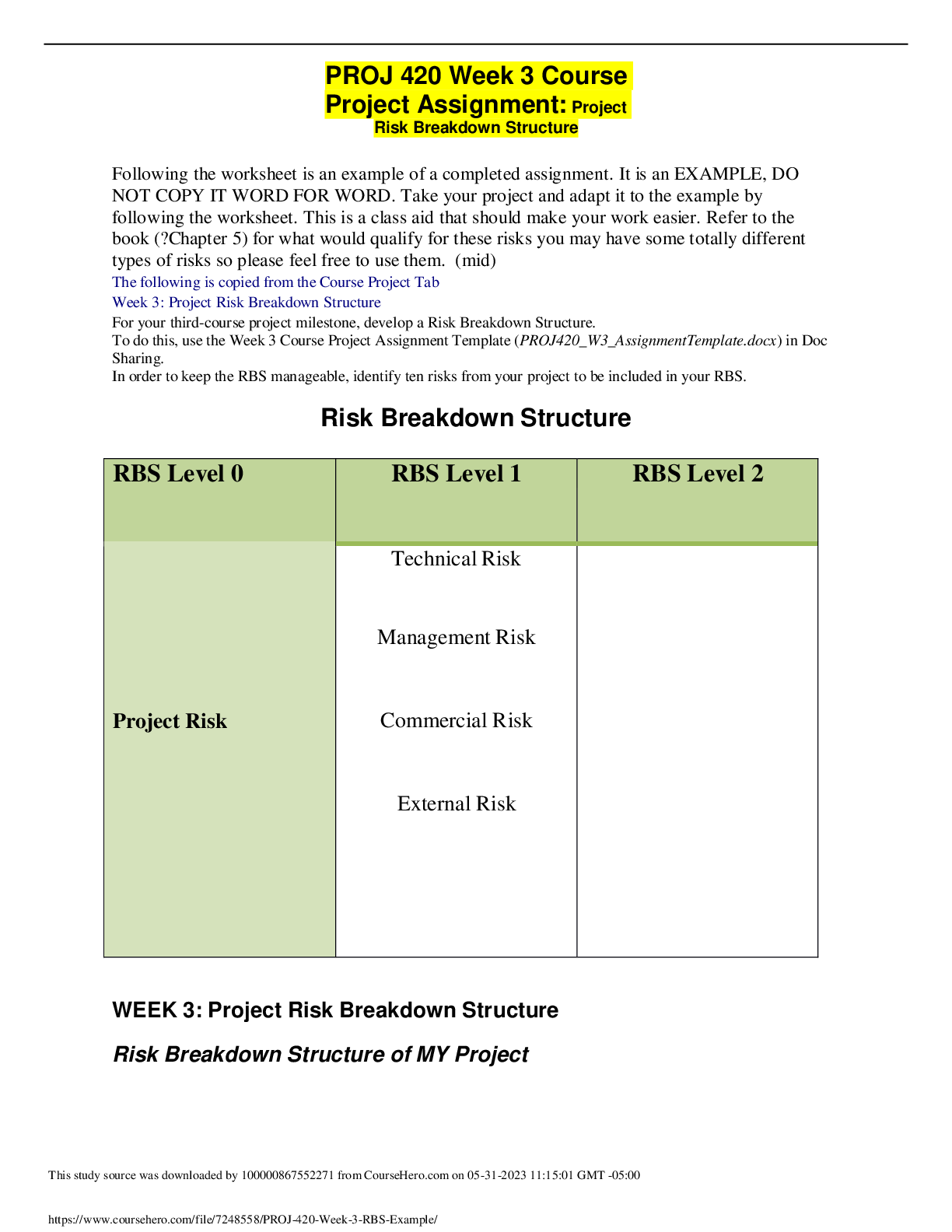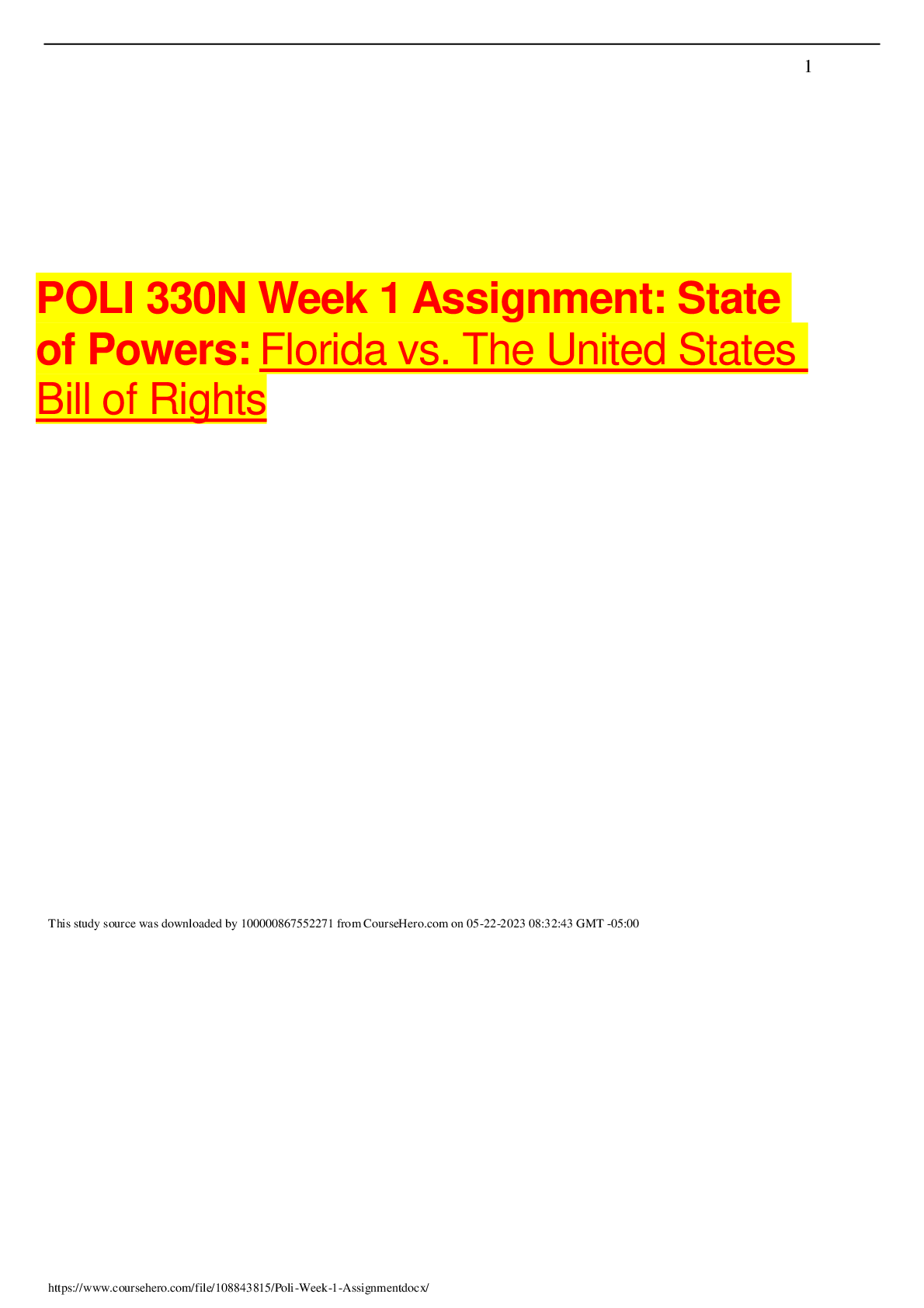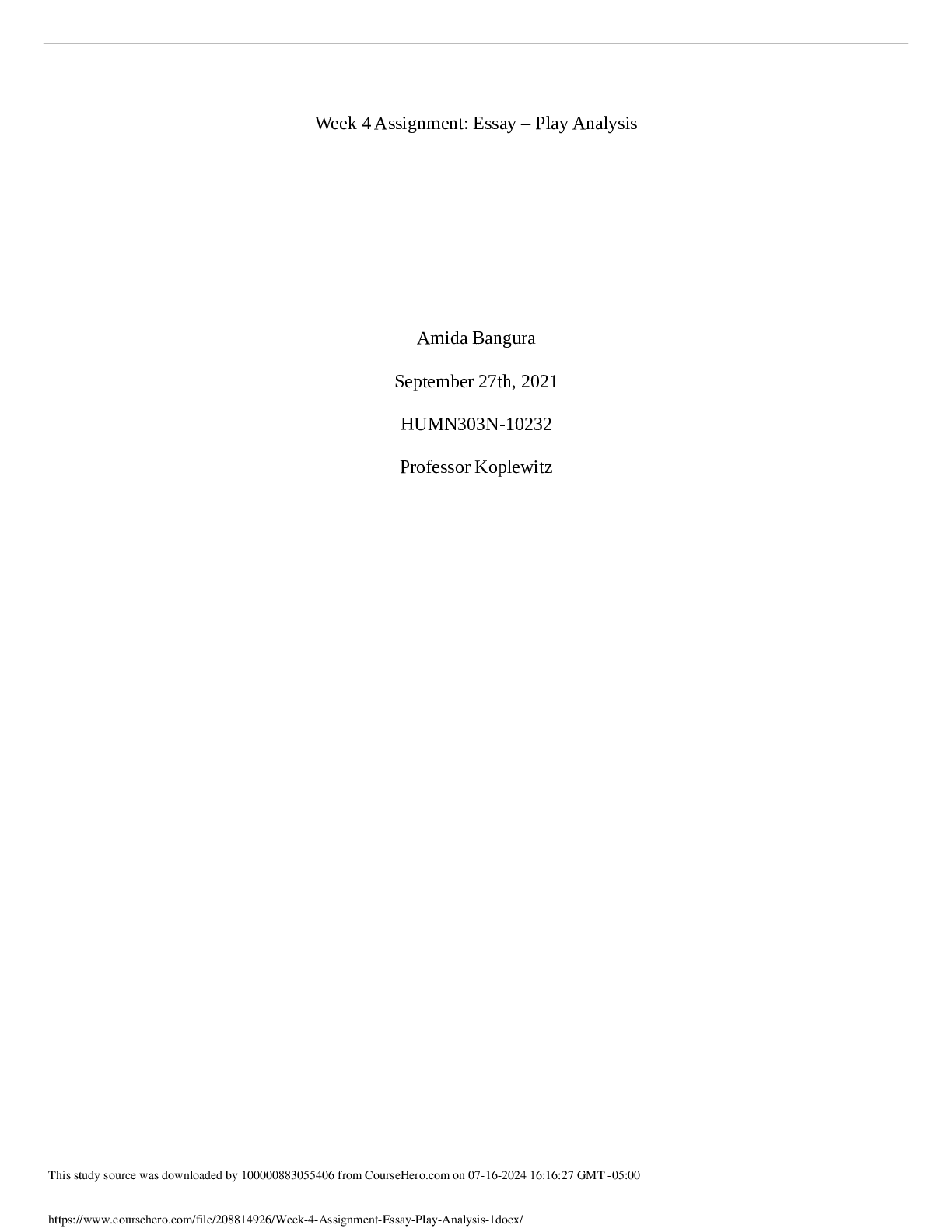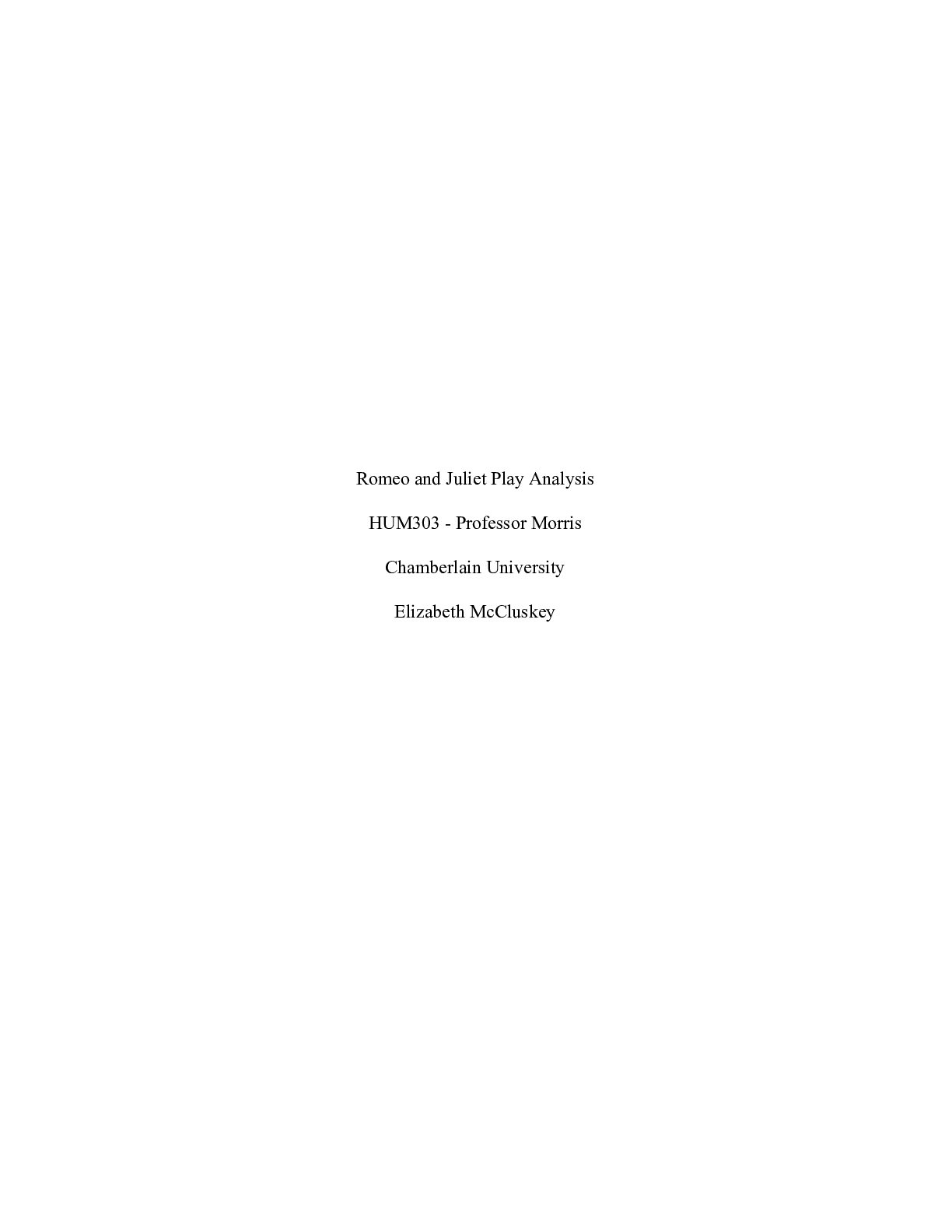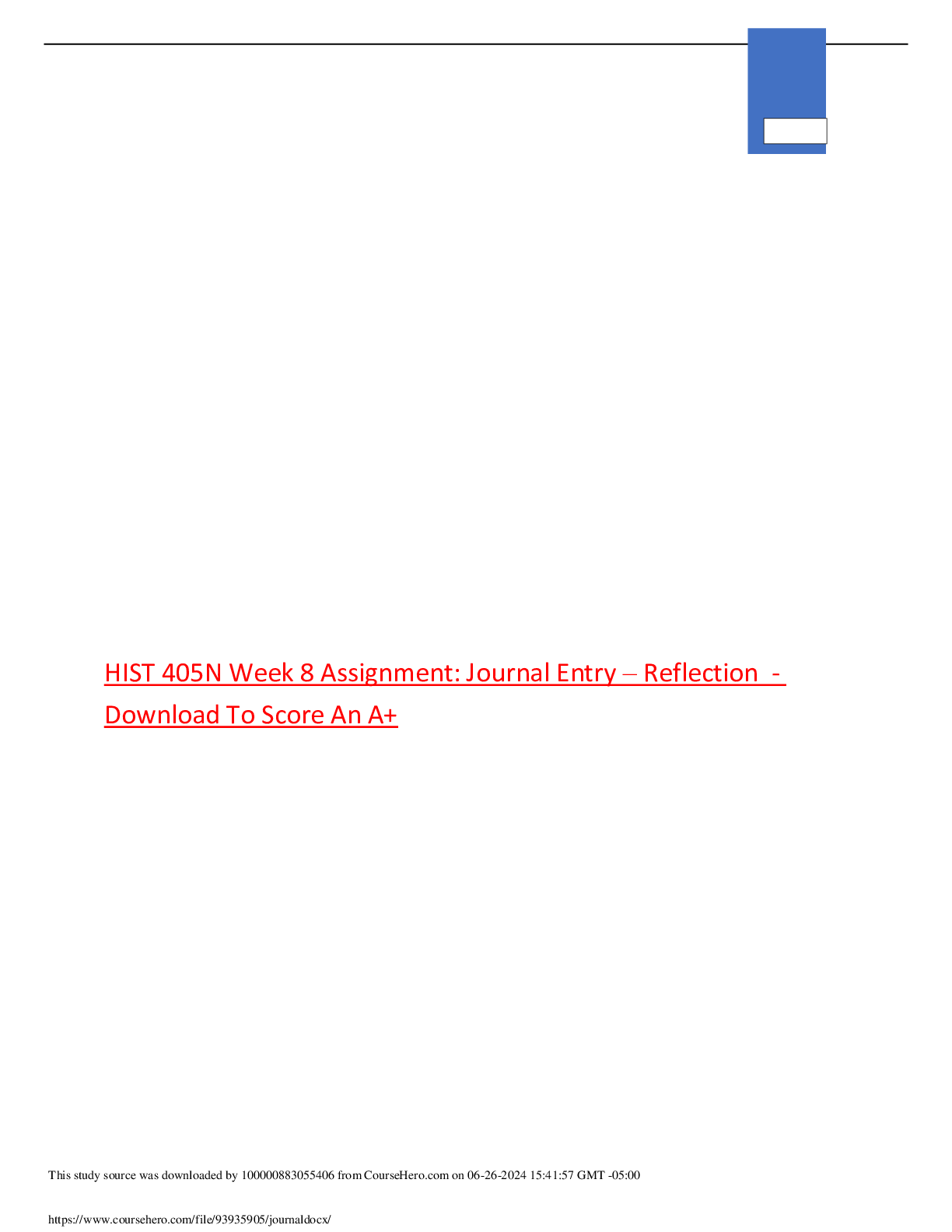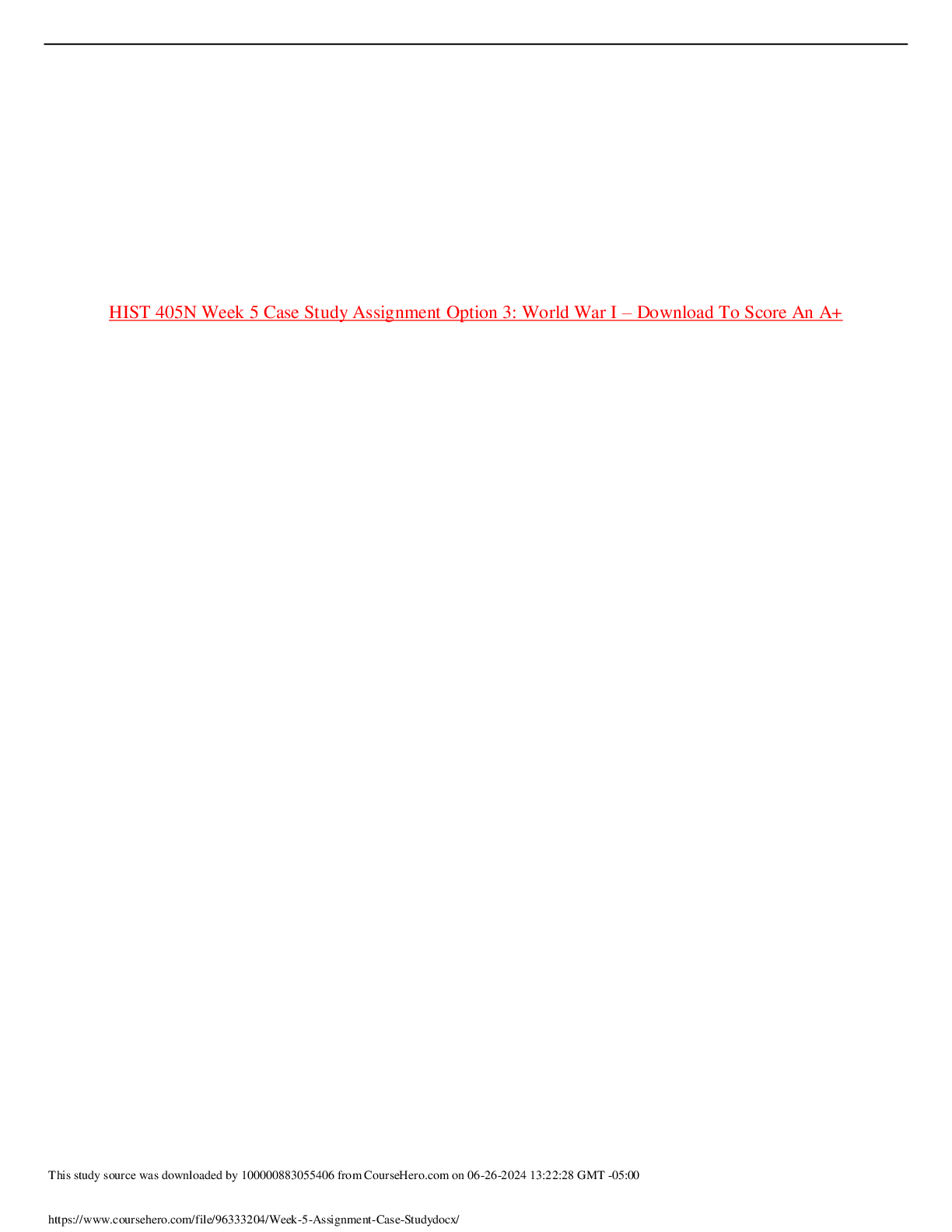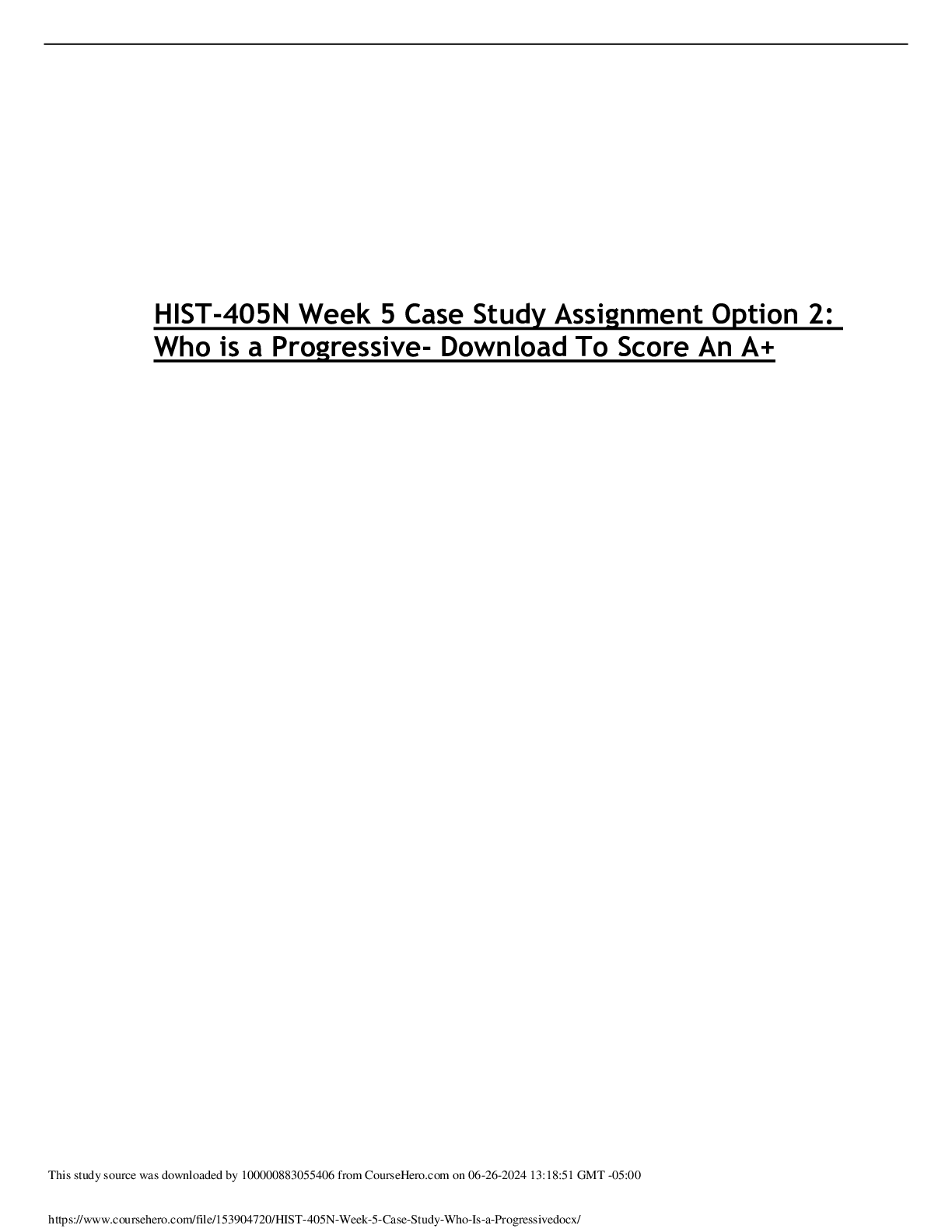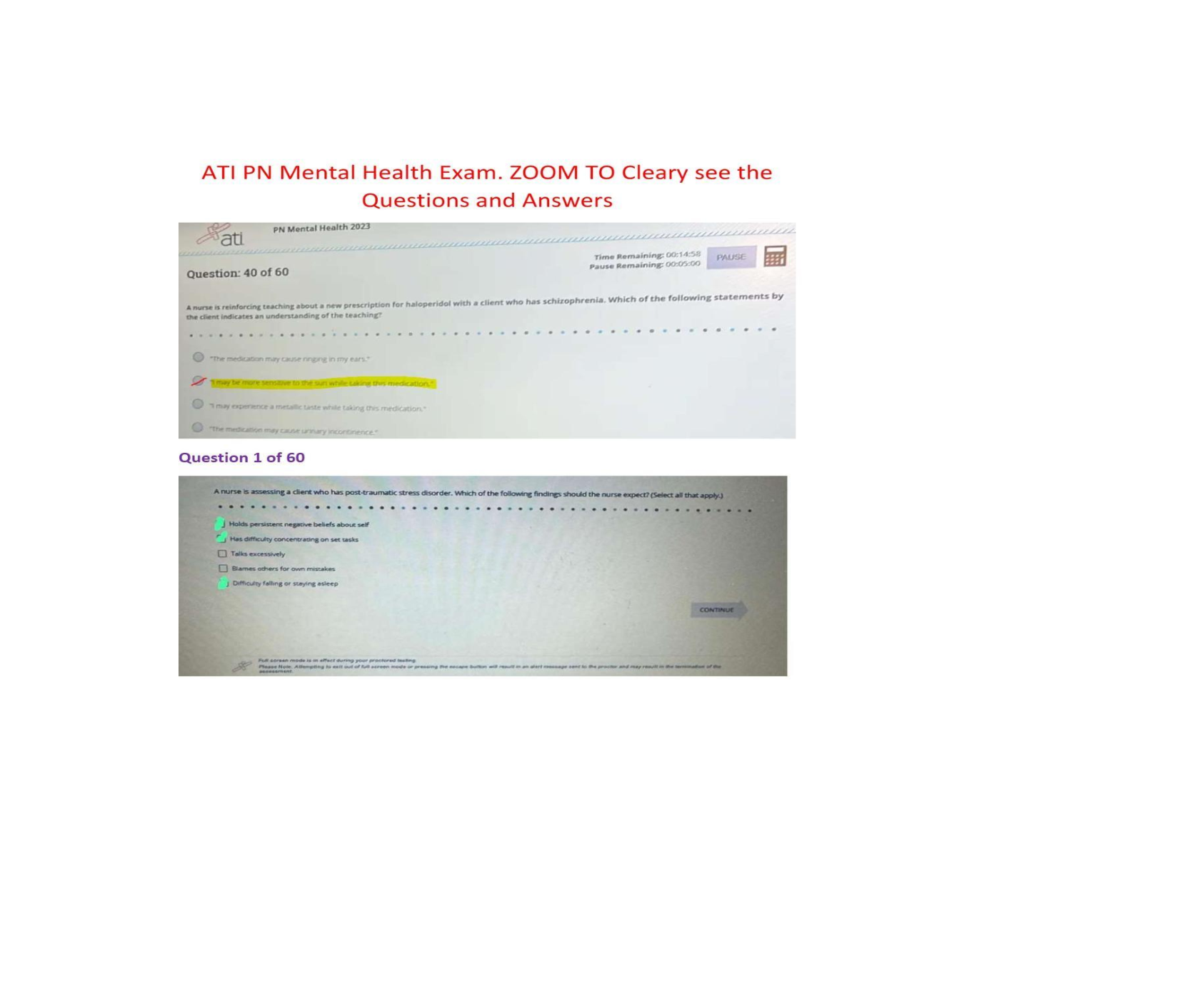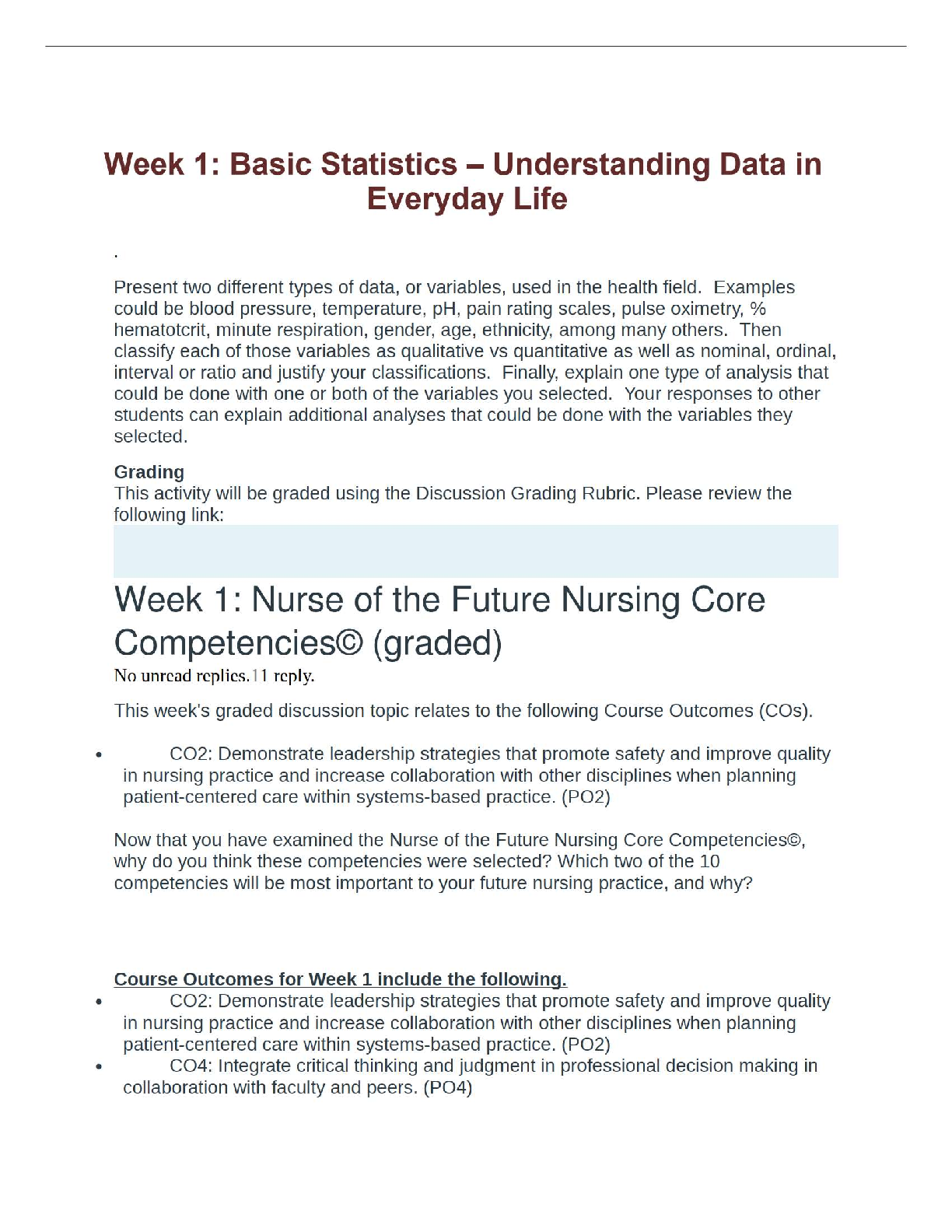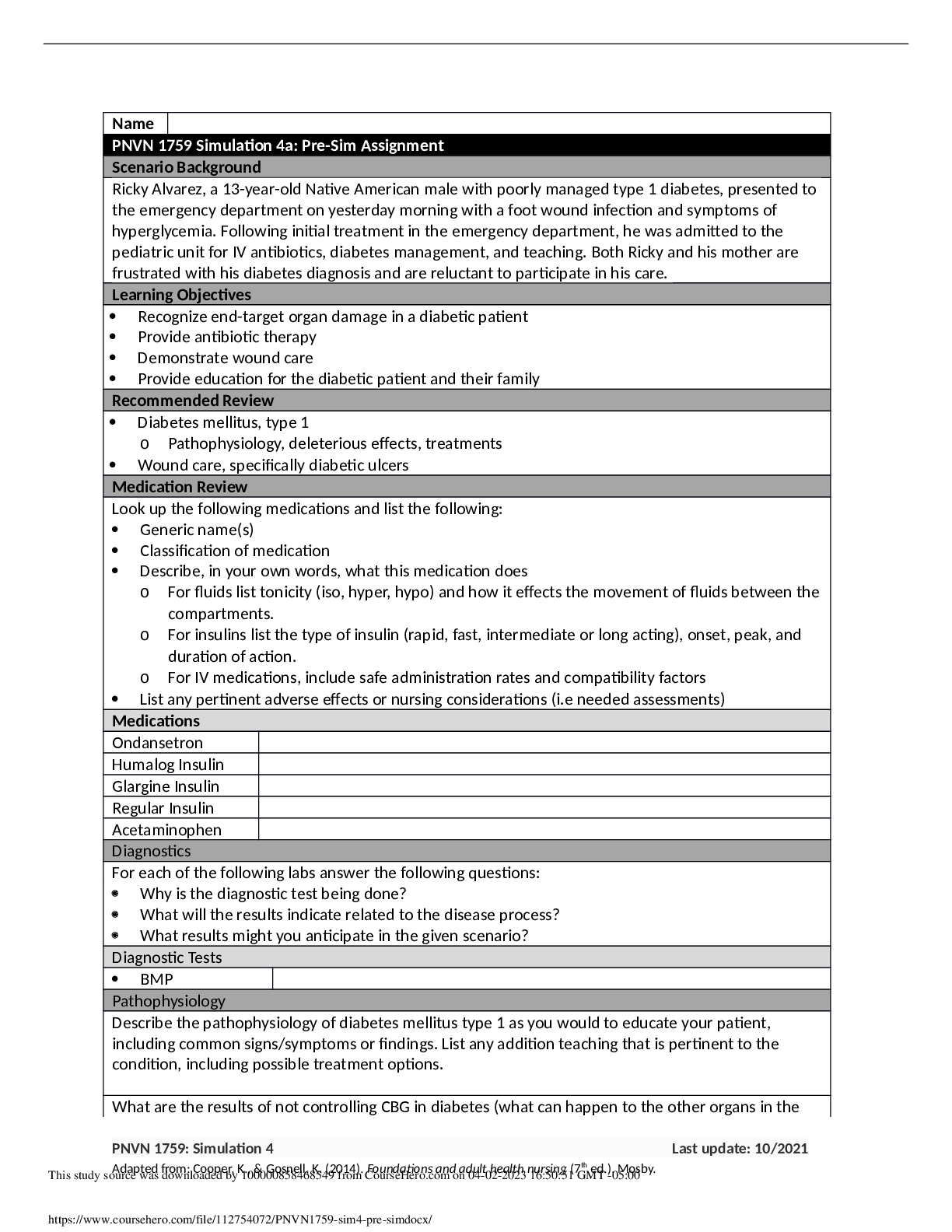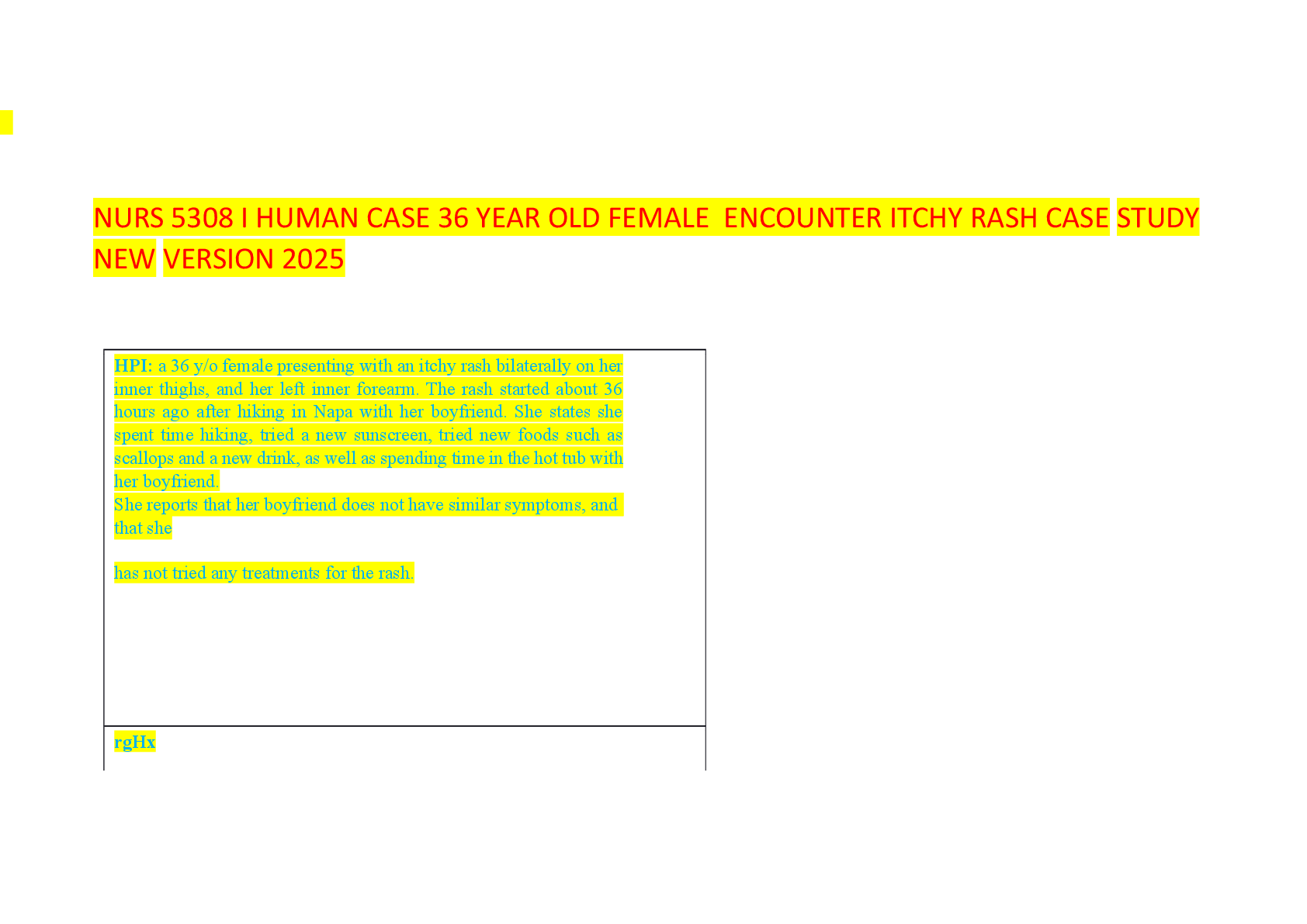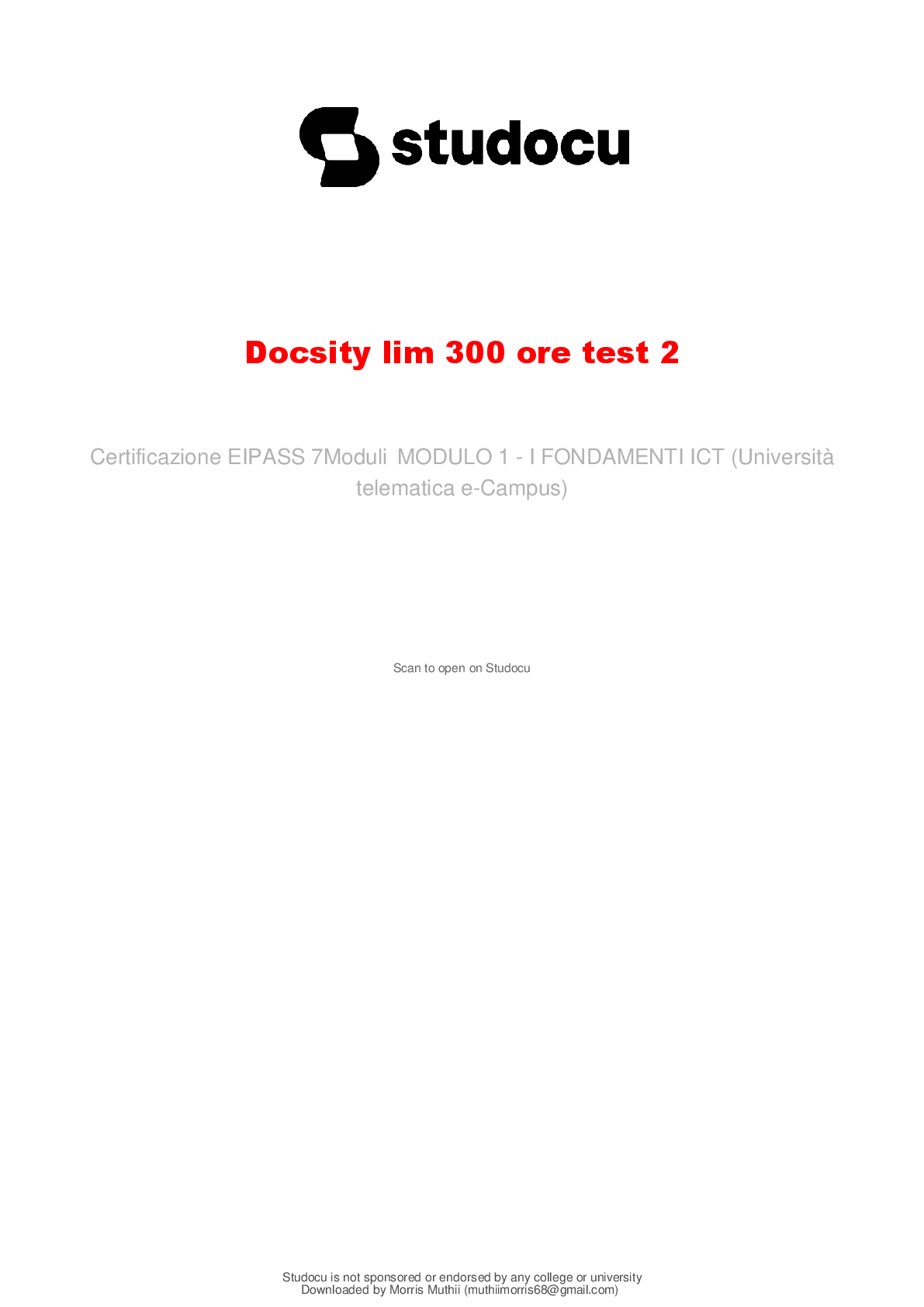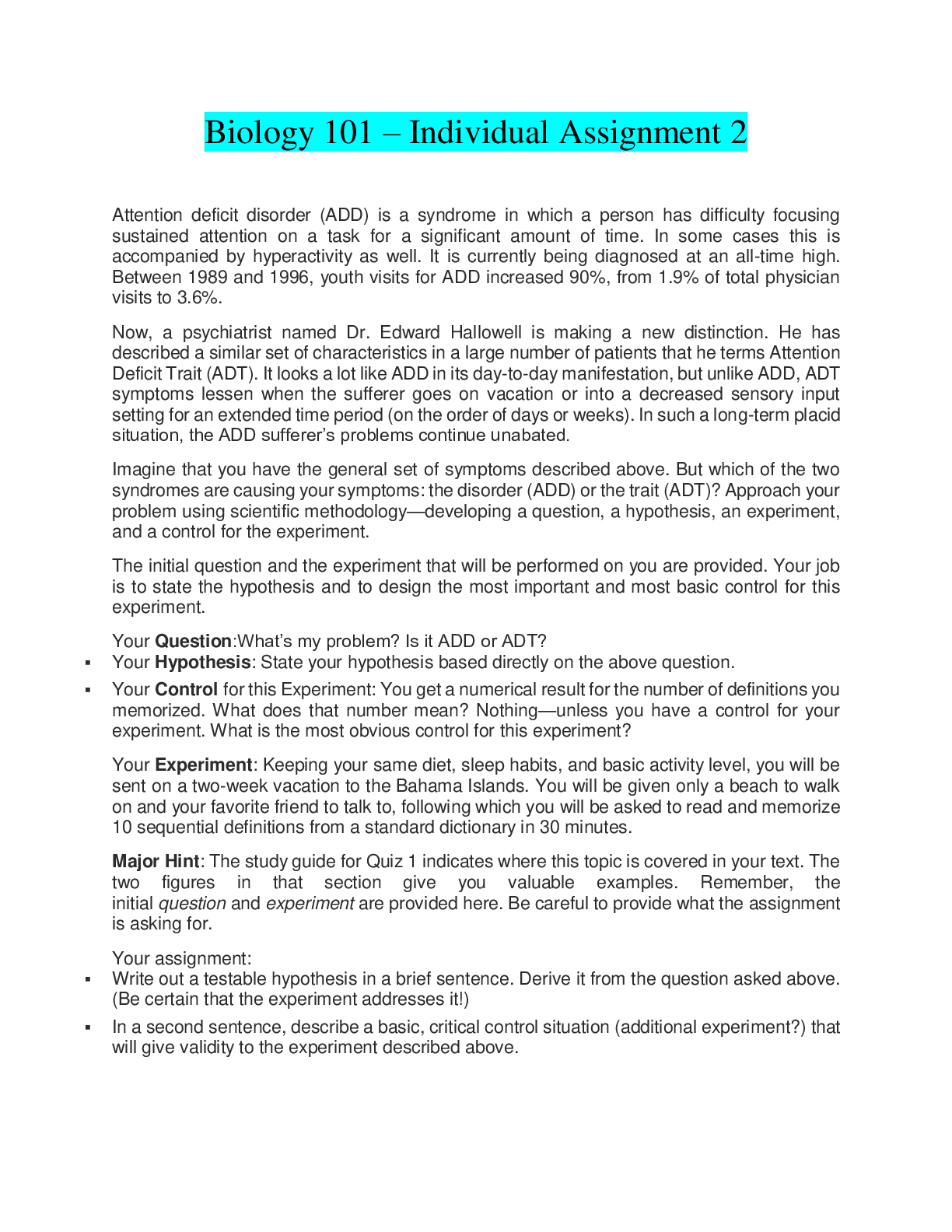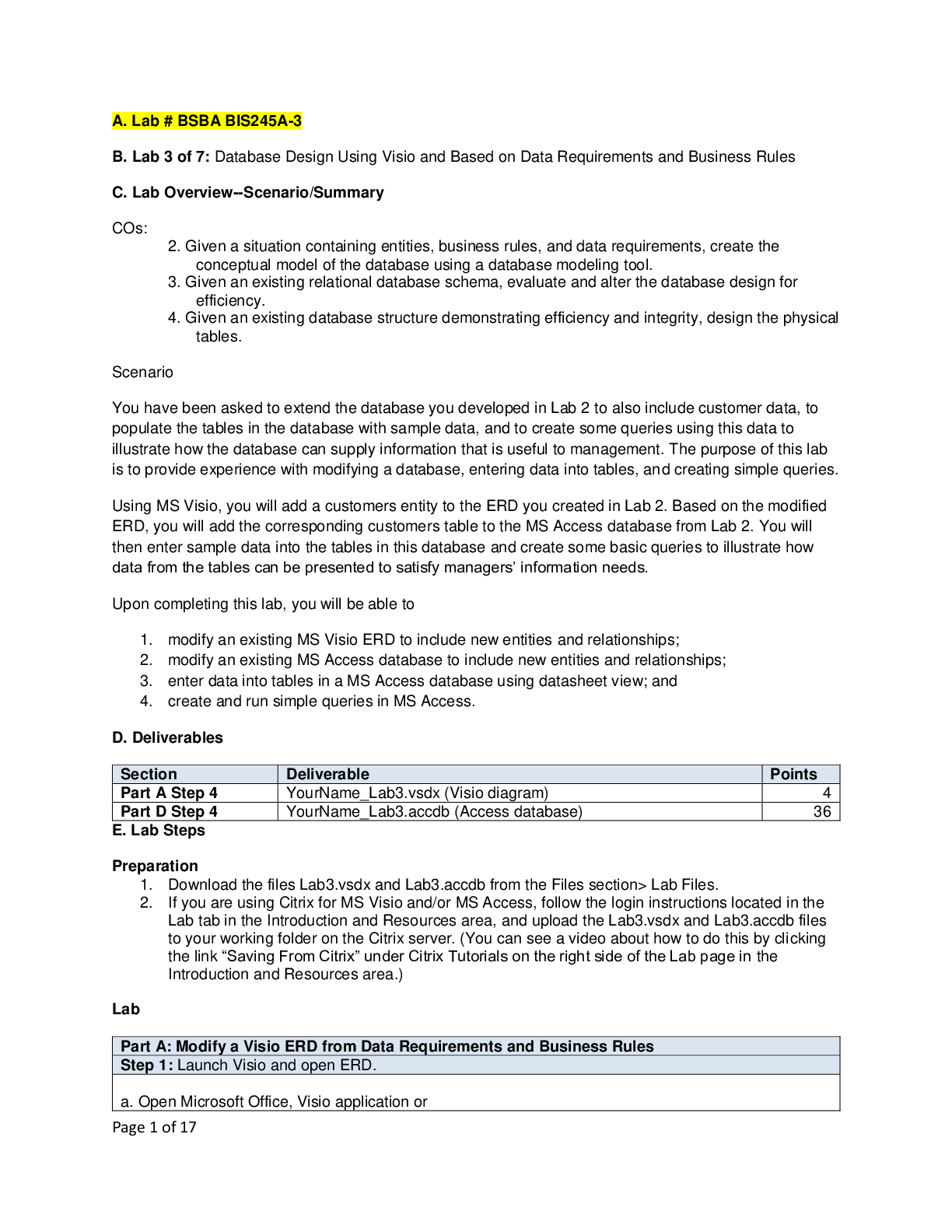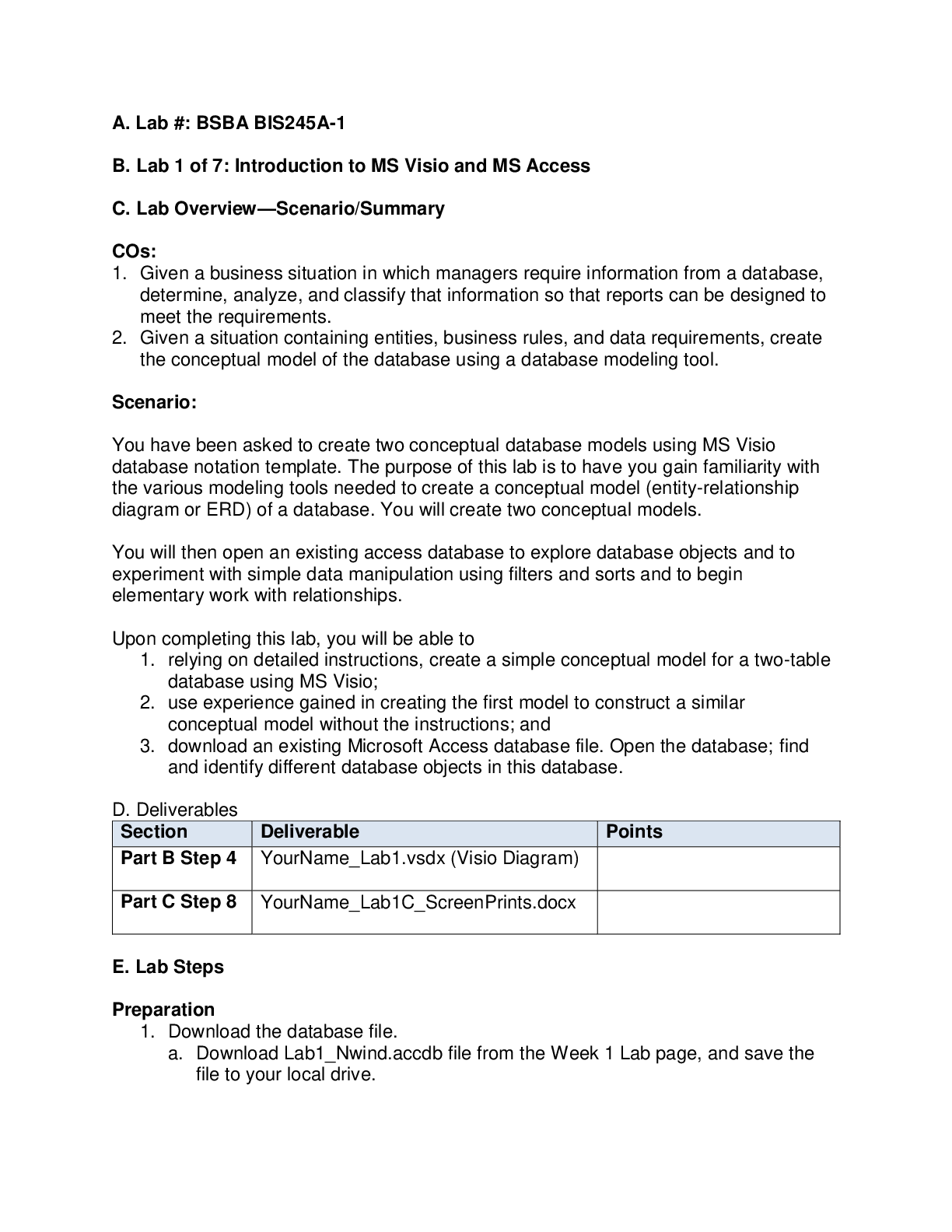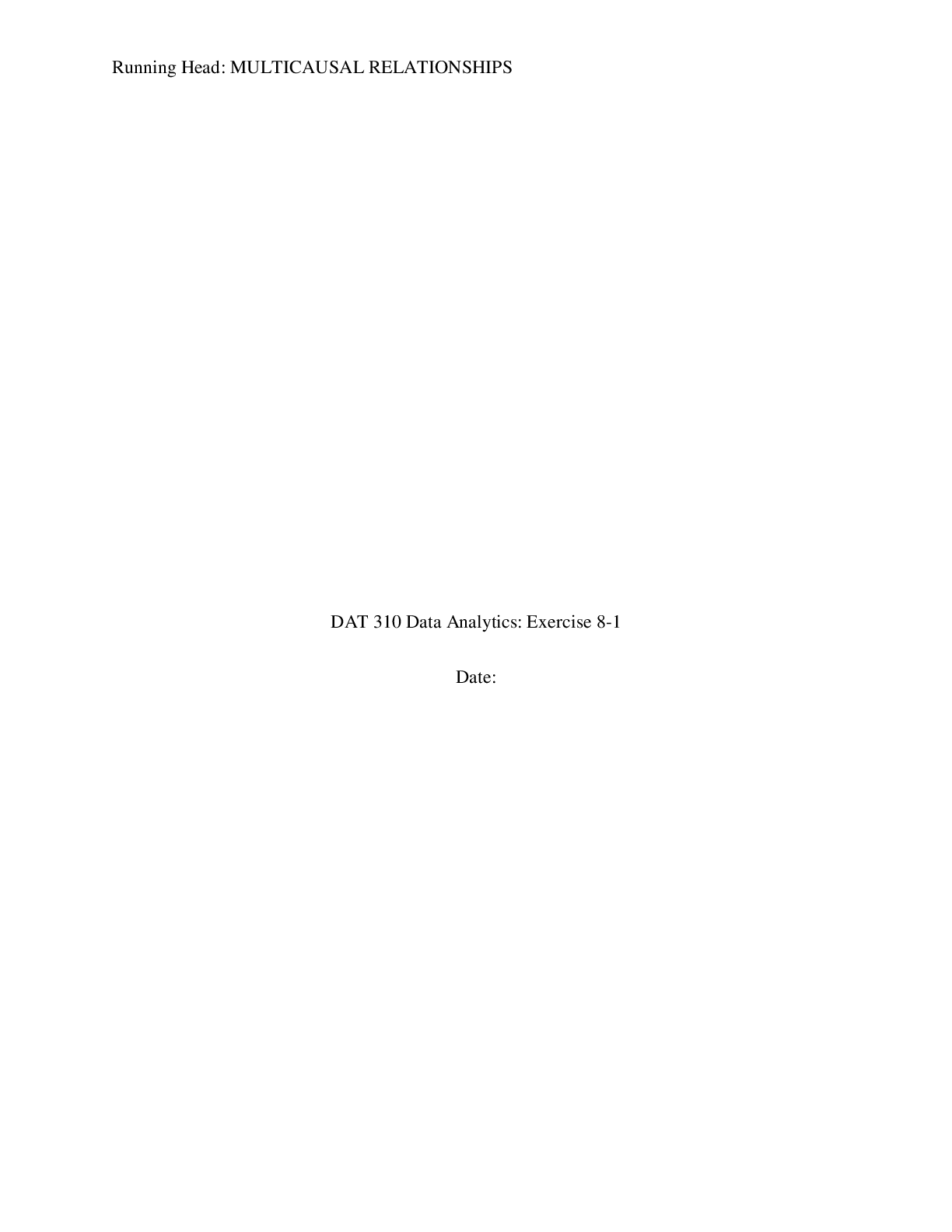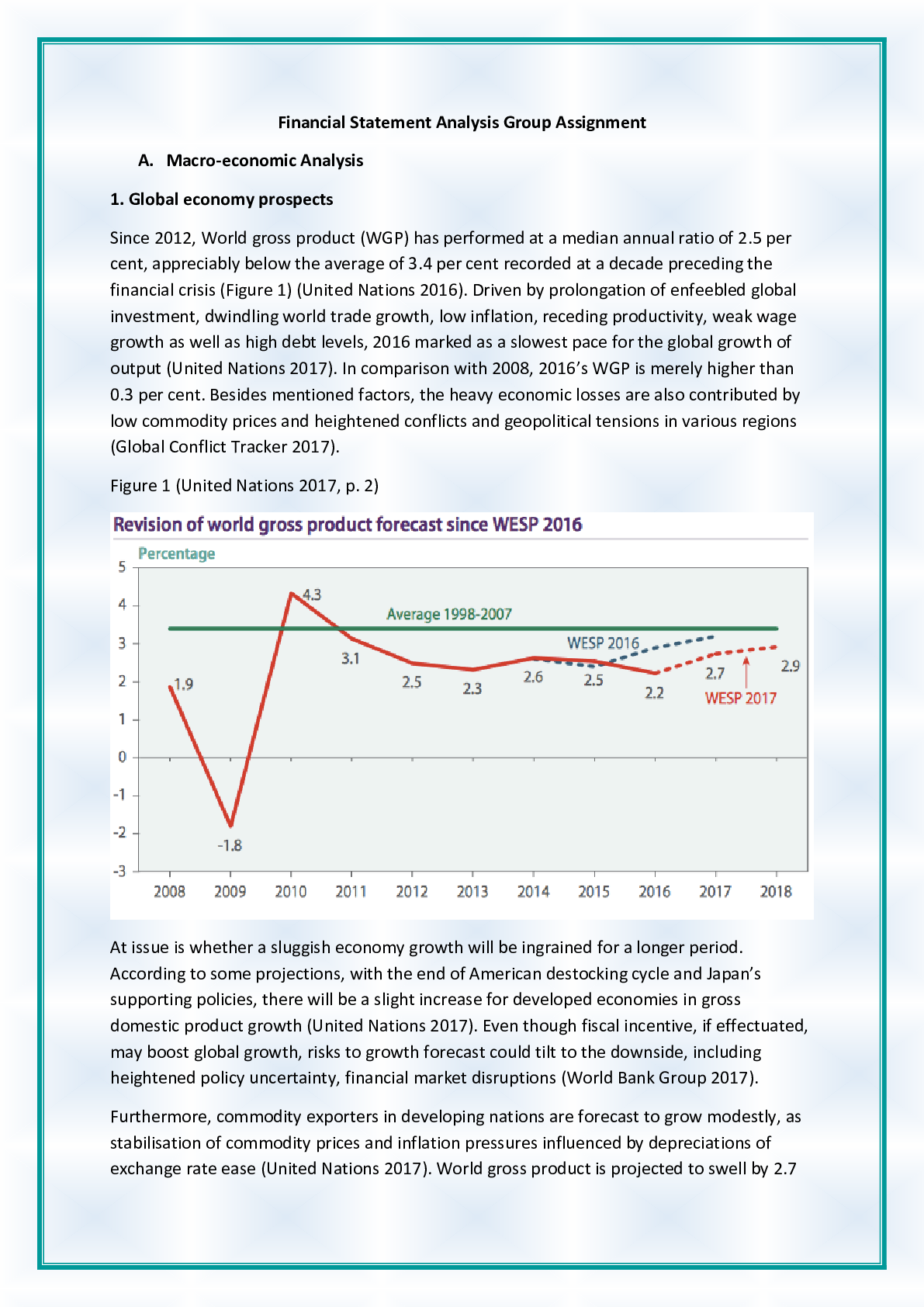Philosophy > ASSIGNMENT > PHIL 347 Week 8 Assignment: Journal - Download Paper For An A (All)
PHIL 347 Week 8 Assignment: Journal - Download Paper For An A
Document Content and Description Below
Assignment Journal - Week 8 Within the last eight weeks, I have learned that critical thinking is more than a thinking process. Critical thinking is a skill that can be used to solve problems; it ... the solution of the argument and many more. Critical thinkers need to be open-minded, methodical, truth finder, analytical, confident in reasoning, curious, thoughtful, understanding, inference, evaluation, self- regulation, analysis, and explanation. Let me write briefly about critical thinker's viewpoints. Open-minded people have the capability of viewing other people's opinions and can correlate their own beliefs. During sensitive arguments they can endure opponent views and revere others opinion. Truth finder are the people don't just depend on conversation, for the right answer they will go beyond and follow reasons and testimony even the results is not in their favor. (Facione, P. A., & Gittens, C. A. (2016). Think critically (3rd ed.). Boston, MA: Pearson.). Analytical people can able to correlate the outcome that has short term and long-term outcome. The systematic person finds an answer by working in an orderly manner. Systematic is essential to all critical thinkers. Confidence in reasoning means a person needs to have faith in their results and outcome. Thoughtful and understanding is also necessary for critical thinkers. (Facione, P. A., & Gittens, C. A. (2016). Think critically (3rd ed.). Boston, MA: Pearson.) Critically thinking is a thinking process that has a deep meaning. The influential critical thinker doubts everything and collects more information. In early-stage influential critical thinkers don't like control. Critical thinker understands that some theories have better understanding and importance compare to others. Critical thinker tries hard to find truth by inquiring in various concepts and then finally concludes. Facion, PA., & Gittens, C.A (2016) mentioned that cognitive development could be parents, grandparents, teachers, and police officers. In the "Heart of the Matter," author Facion, PA., & Gittens, C.A (2016) has explained in detail about comparative reasoning, familiarity, simplicity, comprehensiveness, productivity, testability, ideological reasoning, empirical reasoning, and null hypothesis. This class has taught me many new things, such as four tests for evaluating arguments are Reason, logical relationship, relevance, and the flow of the reasoning. For example, if the claim is valid that people are opposing the health care reform legislation by the president but did not mention the Reason for objecting. (Facione, P. A., & Gittens, C. A. (2016). Think critically (3rd ed.). Boston, MA: Pearson.). The claim and Reason need to be correlated to pass the relevance argument. The flow of the reasoning - if this argument fails at the relevance, therefore, it can't pass the flow of the reasoning. (Facione, P. A., & Gittens, C. A. (2016). Think critically (3rd ed.). Boston, MA: Pearson.). I have also learned about three fundamental reasoning strategies that are Ideological reasoning, Comparative reasoning, and Empirical reasoning. (Facione, P. A., & Gittens, C. A. (2016). Think critically (3rd ed.). Boston, MA: Pearson.). Also, five Criteria for evaluating comparative reasoning that is familiarity, simplicity, comprehensiveness, productivity, and testability. Intimacy is the significance of knowing that the audience has about the object that is being linked to an unfamiliar object. Simplicity is defined as simplicity is the measure of exactly how complex the comparison is given. Comprehensiveness is the extent to which comparison has more essential features. Productivity is the ability of comparison to spark innovative ideas that work exceeding the previous comparison. Testability is the ability of comparison to prognosticate results that could be false/inaccurate or unacceptable. (Facione, P. A., & Gittens, C. A. (2016). Think critically (3rd ed.). Boston, MA: Pearson.). According to me, critical thinking is a life learning process. The individual can be successful in life if they learn new things and skills every day. Reference: Facione, P. A., & Gittens, C. A. (2016). Think critically (3rd ed.). Boston, MA: Pearson. [Show More]
Last updated: 2 years ago
Preview 1 out of 3 pages
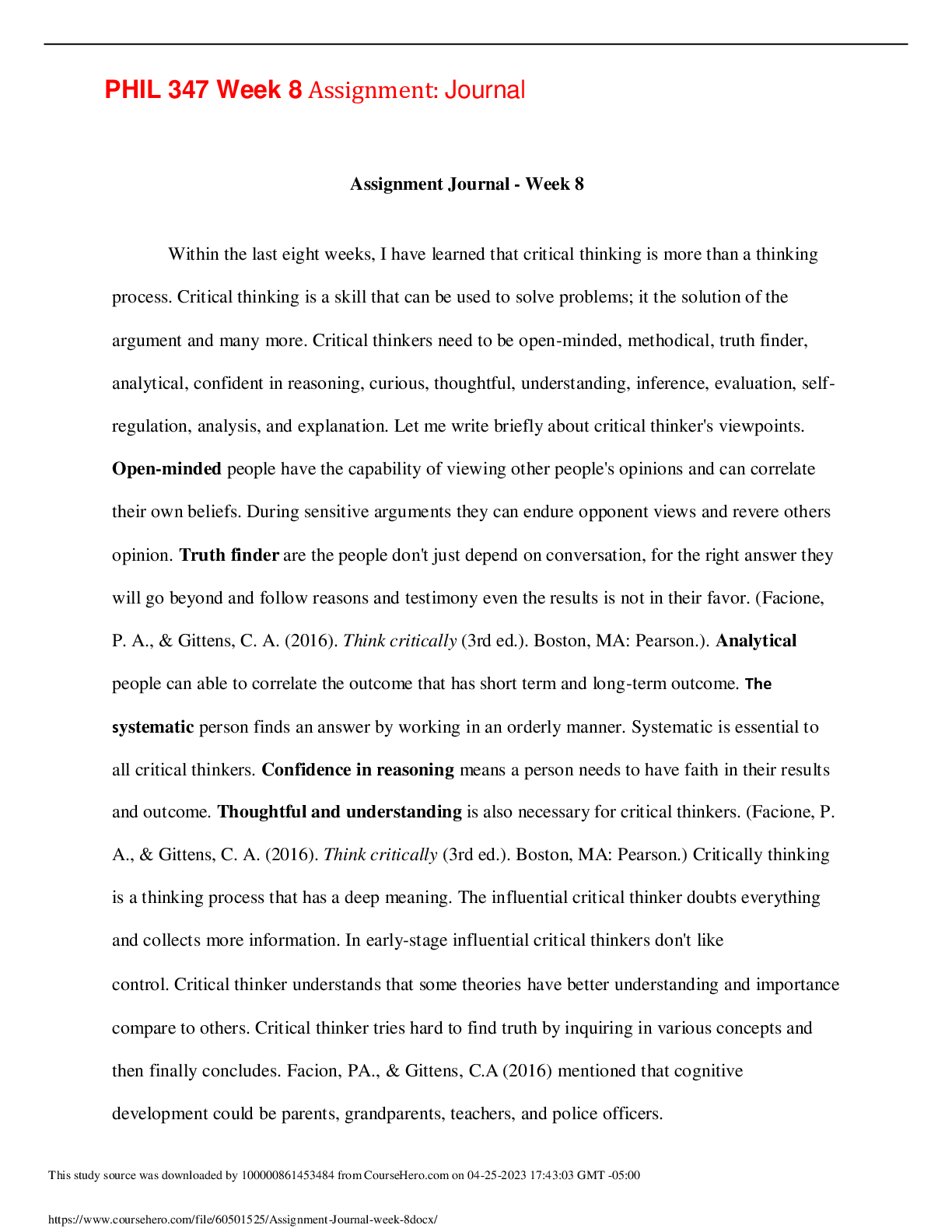
Buy this document to get the full access instantly
Instant Download Access after purchase
Buy NowInstant download
We Accept:

Also available in bundle (2)
Click Below to Access Bundle(s)

PHIL 347 PACKAGE DEAL - DOWLOAD TO SCORE AN A+
PHIL 347 Week 8 Assignment: Journal - Download Paper For An A PHIL 347N Week 6 Discussion 2 Empirical Reasoning PHIL 347 Week 6 Discussion 1: Comparative Reasoning- Download Paper To Get A Pass...
By Doc.Mukai Edyth 1 year ago
$30
19

PHIL 347 Package Deal Critical Reasoning
PHIL 347 Week 1 Assignment: Journal PHIL-347 Week 1 Course Project: Topic Selection PHIL 347 Week 2 Assignment: Journal PHIL-347 Week 3 Course Project: Issue Review PHIL 347 Week 4 Assignm...
By Doc.Mukai Edyth 2 years ago
$25
10
Reviews( 0 )
$10.00
Can't find what you want? Try our AI powered Search
Document information
Connected school, study & course
About the document
Uploaded On
Apr 26, 2023
Number of pages
3
Written in
All
Additional information
This document has been written for:
Uploaded
Apr 26, 2023
Downloads
0
Views
126

